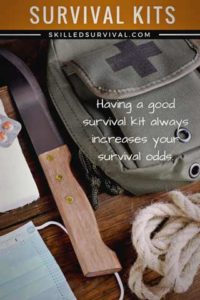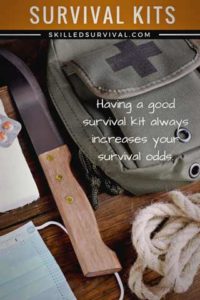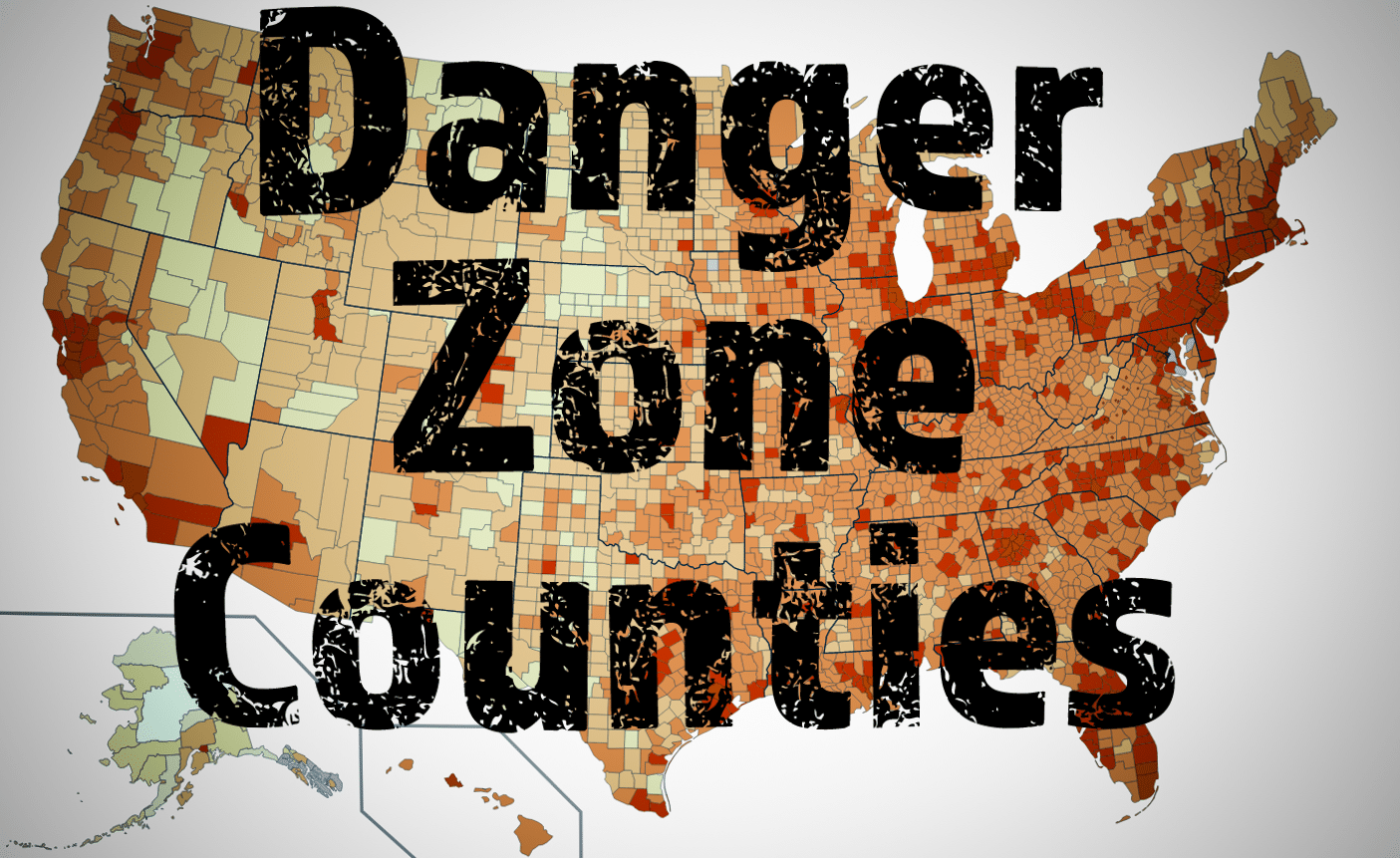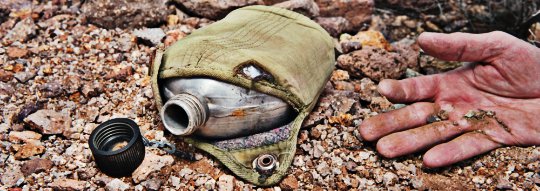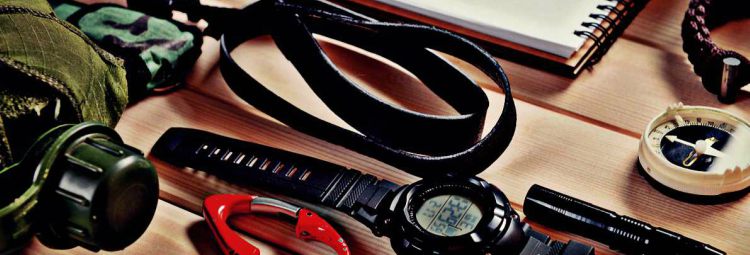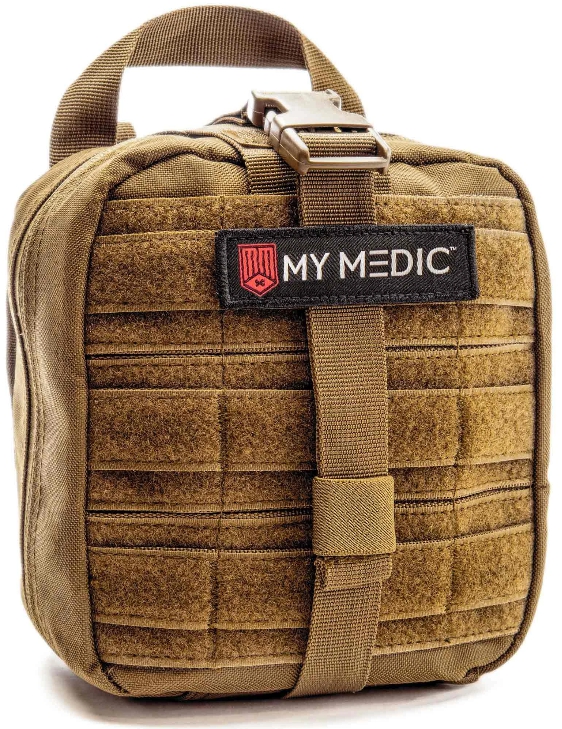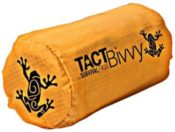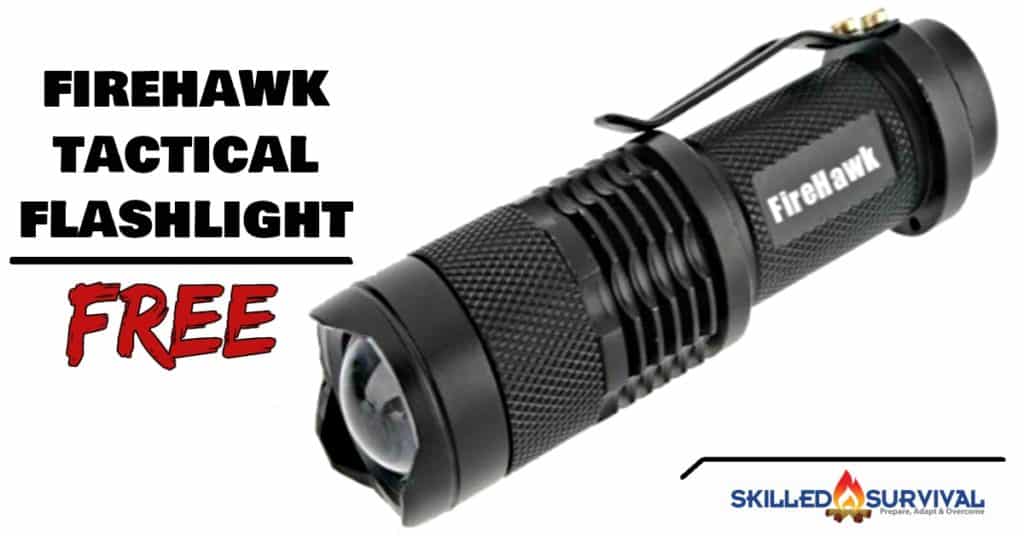The Critical Pieces Of Gear To Add To Your Survival Pack
The idea behind building a survival pack is simple.
It’s a stash of critical survival gear and supplies organized in a portable container.
That’s it!
And while that sounds fairly straightforward – not just any old bargain survival pack items will do.
If you want to build (or buy) an epic one, you need to do some research.
You need to understand what “stuff” makes a survival pack epic and what makes one a dud.
So today, we’re going to go over all the critical pieces of survival gear you need to build a survival pack you can be proud of, specifically:
TABLE OF CONTENTS
Survival Pack Checklist
Food And Water
Tools And Gear
Do YOU Live In A ‘Danger Zone’ County?
Find out NOW with my Danger Zone County List & Special Report – It’s 100% FREE… Click here now for Instant Access!
Your Survival Pack Checklist
It’s important to know what goes into a quality survival pack for two reasons:
- First, you’ll understand how to identify high-quality gear from poor “stuff.”
- And second, this pack list ensures you don’t overlook anything critical.
And even if you buy one instead of building one, you’ll come across extra items you may want to add to the one you’ve bought.
There are no rules against customization – in fact, it’s highly encouraged.
But here’s the problem – many of you survivalists already have their Bug Out Bag packed and ready.
And when we cover in detail what’s inside a kit, you might notice some crossover between the two.
So my advice is this: redundancy is never bad for survival.
Having extra fish hooks and dehydrated meals is never bad.
And many of those items weigh little and are easily packed away without taking up a lot of space.
If the crossover bothers you, you may want to include just those items you don’t have instead of building a second “Survival Pack” almost identical to your Bug Out Bag.
Exclusive Bonus Content – Skilled Survival’s 104 Item Bug Out Bag Checklist – the only bug out checklist worth using. Click Here To Get Your FREE Copy Of It.
Emergency Food & Water Supplies
Before discussing any survival gear, you need to make food and water a priority first.
Without proper hydration and energy, a small emergency can quickly take a turn for the worst.
Even the Red Cross recommends a minimum of:
- Water: one gallon per person, per day (3-day supply for evacuation, 2-week supply for home)
- Food: non-perishable, easy-to-prepare food storage (3-day supply for evacuation, 2-week supply for home)
Water Filters/Tablets:
Clean drinking water is critical for survival situations and from your water taps in everyday life.
Survival water filters and purification tablets should be one of the first things you put into any survival pack.
Iodine tablets are very useful and occupy almost no space inside your pack.
Survival water filters work even faster than iodine, so get a few portable ones, like a Sawyer Mini.
Here’s my video review of the incredible Sawyer Mini.
↓ Sawyer Mini Water Filter Review – Can This Filter 100,000 Gallons? ↓
Calories:
Sustenance is one of the pillars of survival.
Without it, you starve, shrivel up, and die miserably.
Calories are energy, no matter how you’re storing them, so keeping some form of food storage in your emergency pack is essential!
It can be as simple as a few energy bars or freeze-dried, dehydrated meals.
Some people prefer energy gels, packets of peanuts, and trail mix.
Another great survival food for your pack is called Pemmican.
The Native Americans originally invented this survival snack for their own survival needs.
It’s a protein-dense survival superfood that can last decades without refrigeration!
Avoid relying on candies and other food with high sugar content.
They will give you a short burst of energy, and you’ll feel more tired once it’s quickly used up.
The bottom line is to make sure to stash a bit of emergency food in your survival pack.
Emergency Tools & Gear
Survival Knife
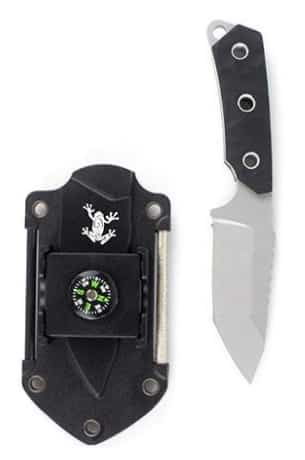
But even a small credit card knife can be helpful in a pinch.
Knives have been one of man’s most important survival tools.
And that remains the same today – don’t get caught unawares without one.
ESEE makes a quality survival knife, but it’s nearly 12″ in overall length.
So, if you’d rather pack a compact survival knife that easily fits into a smaller emergency kit, check out The Survival Neck Knife.
↓ Survival Neck Knife Review – Can Your Neck Knife Do All This? ↓
Waterproof Matches, Striker, and Lighter

Because fire is one of man’s oldest survival tools, you’re under-prepared if you don’t have a way of making one.
Of course, many ways exist to start fires without matches and lighters.
But those methods are complicated, time-consuming, and less reliable.
Instead, pack a set of stormproof, waterproof matches because you should never make surviving an emergency any harder than it needs to be!
↓ UCO Titan Stormproof Mathes: Full Review! ↓
Compact First Aid Pack
You want a small medical first aid kit, not a full EMT trauma kit.
Those large medical kits will consume nearly all of your available pack space.
Sure, you’ll be prepared for almost any medical emergency, but that’s it.
You won’t have room for all the other necessary survival supplies.
MyFAK First Aid Kit By MyMedic
The MyFAK kit is our featured IFAK. It has everything you need with incredible design and function.
The MyFAK is one of the world’s best fully equipped first aid kits for all your adventures. It contains all the life-saving supplies for all traumatic emergencies, such as:
- Bleeding
- Airway obstruction
- Fractures
- Sprains
This IFAK comes with 100 supplies for first aid and trauma. Plus lots of standard supplies for smaller injuries.
It’s compact while storing the maximum amount of equipment.
It’s ready to go with you anywhere and comes with high-quality medical supplies—the type of high-grade equipment that medical professionals use.
Including in the design is a rip-away medical IFAK pouch. This feature provides quick treatment of injuries without having to open the entire kit up.
You can store items that you need quick access to in this panel.
Securing the contents is a heavy-duty zipper that will not snag. You can’t have this happen in an emergency, so MyFaK put on the most robust, high-quality zipper they could find.
Inside the kit is a great layout that’s easy to use and access supplies. This organizational structure is vital in an emergency. It opens up in a tri-fold design, so you have everything laid out to see.
On the outside are MOLLE straps and Velcro patches so you can make quick attachments.
This IFAK is the one you want! And you can rest assured it’s made with quality in mind by an industry leader.
↓ My Medic MyFAK – Walkthrough & Review ↓
Small Compass
Nothing can turn an emergency from bad to worse than getting lost.
That’s why every emergency pack should include a compass.
It doesn’t have to be an expensive compass or even a high-tech one.
It needs to be a compass you can rely on to point you in the right direction.
Inexpensive compasses are easy to find; make sure that it’s reliable.
Once you’ve found a cheap but reliable compass like this, put one in every bag you own.
Your bug-out bag, your hiking backpack, your purse… wherever!
A compass is a useful survival tool to always have on hand.
Fish Hooks and Line
Fishing is one of the easiest and most reliable forms of calorie acquisition in wilderness survival.
Fish make for excellent survival protein, and you can find them in most bodies of water.
And you don’t need a fancy pole and reel setup to catch one.
Some bait, a strong line, and a hook are all one needs to catch a fish in a pinch.
And patience… lots and lots of patience.
Survival Blankets
Emergency sleeping bags, “space blankets,” or bivy sacks as they are sometimes called, are essential for all Survival Packs.
They pack small and look like tin foil than an actual blanket, but these survival devices retain heat.
NASA originally designed them (hence their nickname “space blanket”) for astronauts.
But they work just as well for cold survivors down here on Earth.
Of the ones we’ve tested here at Skilled Survival – The Tact Bivvy by Survival Frog is our favorite.
↓ Bug Out Bag Shelter – Survival Frog TACT Bivvy Review ↓
T-REX Duct Tape

Duct tape is highly useful for everyday tasks and emergencies.
It allows you to build and repair just about anything you might have on hand in a survival situation.
And today’s T-REX duct tape is even better than the original version of this stuff.
Nowadays it’s all-weather, it’s stronger and lasts longer.
↓ T-Rex Tapes Explained ↓
Emergency Poncho
When it starts raining in an emergency, you must stay dry.
Hyperthermia is extremely dangerous, especially in an emergency.
And if you’re stuck outside, with no house, buildings, cave, or other natural structure to seek refuge in, having an emergency poncho at your disposal is crucial.
Having two is even better – you won’t have to share yours if you have a companion.
↓ Frogg Toggs Poncho Review ↓
Emergency Lightsticks
These little devices can be lifesavers.
Not only will they provide some hands-free emergency lighting.
They can also provide a recuse beacon for search parties.
They are inexpensive, simple to use, and easily fit into any size kit.
Dust Masks
Let’s be honest – none of us can predict the sort of emergency we’ll end up in.
And if it includes fire, smoke, ash, dust, particulate matter, or other discharge of similar nature, then you will want a dust mask.
These protect your respiratory system from pollutants and toxins.
They are cheap, lightweight, and easily packed away.
Or you can upgrade from a dusk mask to a full-blown gas mask for more dangerous chemicals in the air.
Nitrile Gloves
The applications for these are nearly endless.
Nitrile gloves are important when working with injuries.
They’re useful for cleaning nasty things (like toilets) or toxic materials.
So stuff a couple of pairs of these into your survival pack.
You never know what you’ll need them for, but you can be almost certain you’ll need them for something.
Emergency Whistle
While you might have a loud shouting voice, survival whistles are always better at alerting people.
No matter how loud you think you can get, your voice will not carry as far as a whistle.
SE 7-IN-1 Green Survival Whistle
The 7-in-1 Survival Whistle is a high-tech whistle that comes with a LED flashlight and a compass (as the name implies). It also includes the following:
- signaling mirror
- waterproof storage compartment
- thermometer
- magnifying glass
- 16” lanyard
This device is helpful in any survival situation.
The main drawback to this whistle is its color. Instead of neon-orange (which makes it easy to spot), this one’s green. This color tends to blend into nature’s surroundings.
This may be a Pro if you are not interested in rescue but evasion.
↓ NDUR 7-in-1 Survival Whistle Overview ↓
Survival Flashlight & An Extra Battery
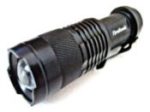
I recommend packing a survival flashlight that’s super bright and only requires a single AA battery.
No matter how bright a flashlight might be, you don’t want to deal with special battery sizes.
That way, you can pack an extra battery of the same size (AA) and have a flashlight for any emergency or survival situation.
For A Limited Time Only: Get a FREE FireHawk Tactical Flashlight For Visiting Skilled Survival! Just pay s&h. Click Here To Learn More.
↓ Get A FREE FireHawk Tactical Flashlight (+S&H) ↓
Bio-Hazard Bags
I don’t know what kinds of injuries I’ll deal with in a future emergency, nor do you!
Biohazard bags are the things you do not need until you need them.
Entertainment
A deck of survival playing cards, a cribbage board, a book, or a magazine can make a huge difference in a survival situation.
Entertainment can preserve one’s sanity in stressful situations.
An emergency kit without some form of distraction (like a deck of survival cards) is incomplete.
Personal Items
Do you wear contact lenses?
If so, you should stash a spare pair in your emergency preparedness pack.
Seeing in a crisis is essential; contacts can fall out or get debris in them.
Do you take insulin or special medications?
Obviously, you also need to add some spares of those critical items to your pack.
Think about the items specific to you and your health and add them to your preparedness pack.
Final Thoughts
A survival pack is the kind of asset that makes the difference between a chaotic and difficult struggle and a manageable challenge.
With a single bag, you can prepare yourself for the worst emergency.
As I mentioned, there are a lot of crossovers between “Bug out Bags” and survival packs.
THIS IS OKAY.
I do not recommend supplementing one for the other. Why not have both?
It’s good to have two, even if they are roughly the same and loaded with many of the same supplies.
It means you’re doubly prepared in the event of an emergency.
Redundancy in survival is often a good thing, do not be afraid to have more than one of the same survival tools.
Will Brendza
P.s. Do You Live In A ‘Danger Zone’ County?
Find out now using my Danger Zone County List & Special Report it’s absolutely FREE.
In minutes you’ll know EXACTLY where you stand and if you should be worried or not..
So click here to get my FREE Danger Zone County List & Report….
Click on the image to get the List & Report for FREE and find out if YOU live in a ‘Danger Zone’ County…”
The post How To Build A Survival Pack You Can Be Proud Of appeared first on Skilled Survival.


